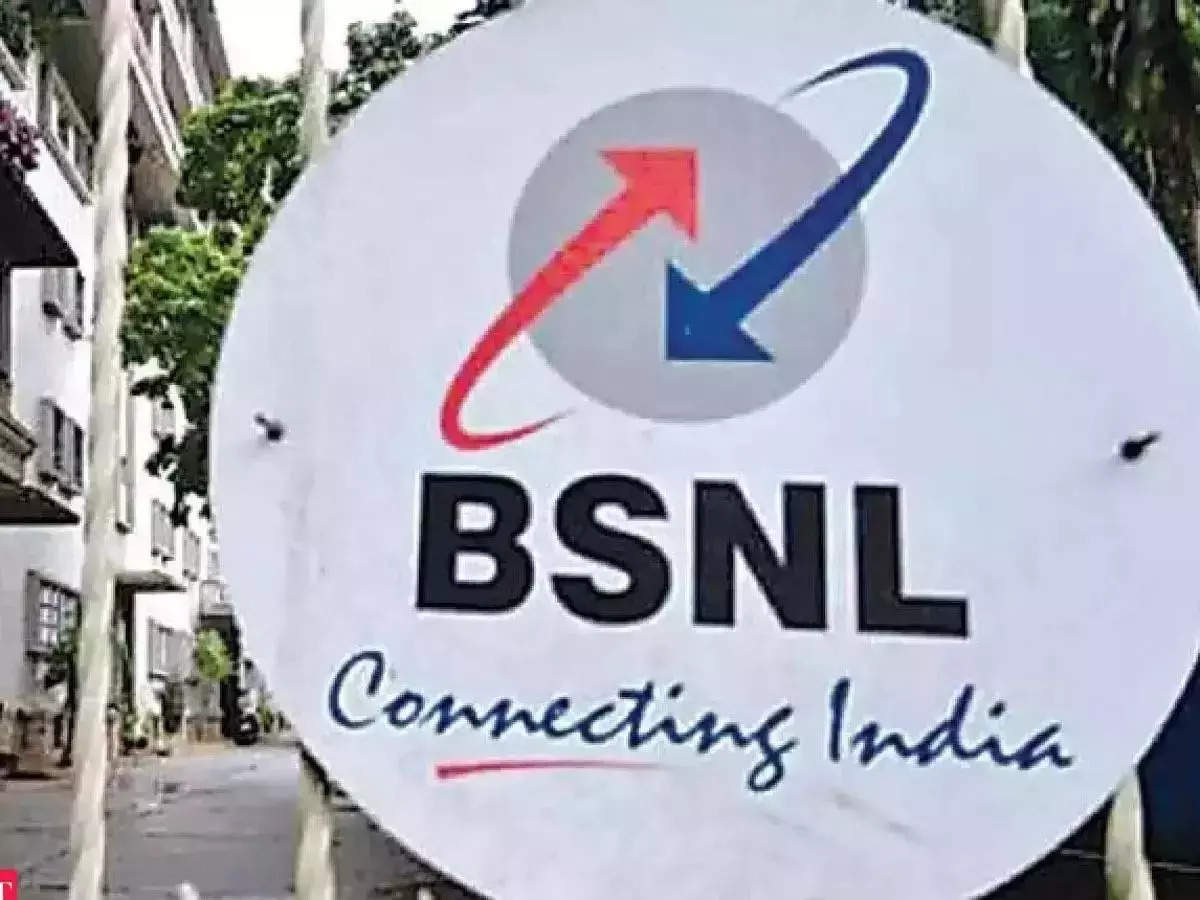BSNL: Government approves Rs 8,000 crore revival plan for BSNL – Times of India
This revival package is expected to help BSNL emerge as “a stable telecom service provider focused on providing connectivity to remotest parts of India,” the statement added.
BSNL plans to roll out 4G and 5G services countrywide
BSNL has recently partnered with Tata Consultancy Services (TCS) to deploy a 4G network across India. However, BSNL’s 4G push comes during a time when all its competitors are currently in the process of rolling out 5G.
BSNL has faced challenges due to its outdated infrastructure and stiff competition from privately-owned telecom operators, including Reliance Jio, Bharti Airtel, and Vodafone Idea, all of which offer affordable 4G services for voice calls and data. However, BSNL’s latest statement suggests that it will be able to provide 4G and 5G services across India, extend 4G coverage to rural and uncovered villages, offer high-speed internet through Fixed Wireless Access (FWA) services, and provide services/spectrum for Captive Non-Public Network (CNPN).
The package details include budgetary support for various bands such as 700 MHz, 3300 MHz, 26 GHz, and 2500 MHz, amounting to a total of Rs. 46,338.60 Cr, Rs. 26,184.20 Cr, Rs. 6,564.93 Cr, and Rs. 9,428.20 Cr respectively.
In 2019, the government passed a revival package worth Rs. 69,000 crores for BSNL/MTNL (Mahanagar Telephone Nigam Limited), and in 2022, a second revival package of Rs. 1.64 lakh crore was approved to bring stability to the company.
In July 2022, Minister Ashwini Vaishnaw announced a cash package of 1.64 lakh crore to be used for spectrum allocation, capital expenditure, and viability gap funding.
According to government data, these packages have helped BSNL achieve operating profits since FY 2021-22. Additionally, BSNL’s total debt has decreased from Rs 32,944 crore to Rs 22,289 crore.
function loadGtagEvents(isGoogleCampaignActive) { if (!isGoogleCampaignActive) { return; } var id = document.getElementById('toi-plus-google-campaign'); if (id) { return; } (function(f, b, e, v, n, t, s) { t = b.createElement(e); t.async = !0; t.defer = !0; t.src = v; t.id = 'toi-plus-google-campaign'; s = b.getElementsByTagName(e)[0]; s.parentNode.insertBefore(t, s); })(f, b, e, 'https://www.googletagmanager.com/gtag/js?id=AW-877820074', n, t, s); };
window.TimesApps = window.TimesApps || {}; var TimesApps = window.TimesApps; TimesApps.toiPlusEvents = function(config) { var isConfigAvailable = "toiplus_site_settings" in f && "isFBCampaignActive" in f.toiplus_site_settings && "isGoogleCampaignActive" in f.toiplus_site_settings; var isPrimeUser = window.isPrime; if (isConfigAvailable && !isPrimeUser) { loadGtagEvents(f.toiplus_site_settings.isGoogleCampaignActive); loadFBEvents(f.toiplus_site_settings.isFBCampaignActive); } else { var JarvisUrl="https://jarvis.indiatimes.com/v1/feeds/toi_plus/site_settings/643526e21443833f0c454615?db_env=published"; window.getFromClient(JarvisUrl, function(config){ if (config) { loadGtagEvents(config?.isGoogleCampaignActive); loadFBEvents(config?.isFBCampaignActive); } }) } }; })( window, document, 'script', );
For all the latest Technology News Click Here


